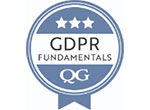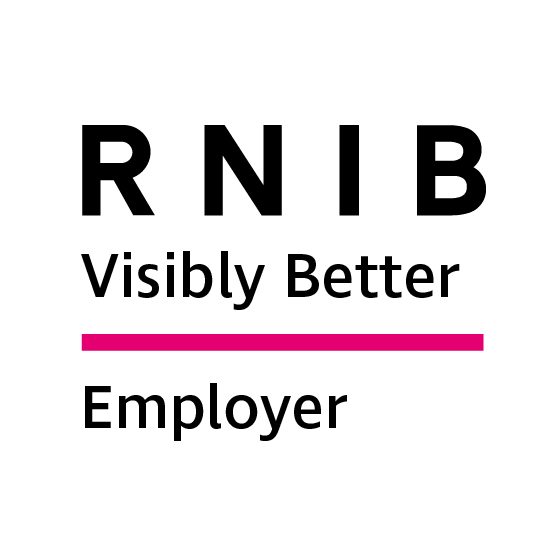Ethics, trust, AI, and human oversight in assessments
The integration of Artificial Intelligence (AI) into high-stakes assessments represents a watershed moment for educational and professional certification. While AI promises a revolution in efficiency, analytical depth, and scalability, there are still some complex ethical and compliance challenges.
This article aims to explore these issues and make a compelling case for the indispensable role of a human proctor in maintaining the ethical integrity of assessments.
Posted 11 September 2023
A complex ethical and compliance landscape
On paper, AI has the remarkable ability to sift through massive datasets and make judgments without being influenced by the emotional or cognitive biases that might affect human evaluators. However, in reality, algorithms can inherit and perpetuate biases embedded in the training data, leading to skewed assessments. Human intervention is therefore necessary to detect, correct, and prevent such instances, and ensure genuine fairness.

The challenges of data privacy and regulatory compliance
The magnitude of data that AI systems process makes them invaluable tools. However, this ability becomes a double-edged sword when considering privacy and compliance issues. Personal data, once fed into these systems for evaluation, must be managed with the utmost care to ensure compliance with international regulations such as the GDPR. It becomes a human responsibility to oversee that the data is stored securely, used responsibly, and deleted when no longer needed, keeping ethical considerations at the forefront.

Transparency, accountability, and the quality conundrum
One of the major criticisms of AI is its opacity—often described as a 'black box' phenomenon. In high-stakes assessments, where the outcome could have serious consequences, it’s imperative that stakeholders understand how decisions are reached. Transparency in methodology and the opportunity for human review are indispensable. Moreover, while AI can quickly analyze structured answers, it lacks the ability to fully comprehend the richness and complexity of more nuanced responses, thereby underscoring the need for human evaluation.

Adaptability and post-pandemic challenges
The COVID-19 pandemic has had a dramatic impact on how assessments are conducted. The need for remote testing solutions has skyrocketed, and ensuring the fairness and reliability of assessments conducted under these circumstances has become a focus. Safety-critical sectors, where lives may depend on the qualifications granted, have come under particularly close scrutiny. It is increasingly evident that AI alone cannot address these challenges and that human oversight remains paramount.

Security and trustworthiness: Building confidence in assessments
In an era where data breaches and cyber-attacks are increasingly common, the security of high-stakes assessments has never been more critical. Advanced authentication measures and rigorous invigilation protocols contribute significantly to the trustworthiness of an assessment system. By employing multifactor authentication, continuous monitoring, and secure data encryption, a robust layer of security is added to the assessment process.
Moreover, using observational assessments where relevant can provide additional layers of trust. This method allows human proctors to assess real-world skills and behaviours, not just theoretical knowledge, thereby reducing the chances of cheating or impersonation.
Taking into account complex ethical considerations such as accessibility, transparency, privacy, and security is paramount. It is this holistic approach to ethical compliance that makes an assessment system not just reliable but also deserving of stakeholder trust.

Human oversight as the ethical anchor
Human involvement is not just about complementing AI's computational prowess; it's about introducing a level of emotional and ethical intelligence that machines cannot yet emulate. Human involvement ensures that AI is applied responsibly, keeping ethical conduct and compliance as the ultimate goals.

Versatility for formative and summative assessments
In tackling the ethical and practical challenges of AI in assessments, the necessity for a system that's versatile enough to adapt to both formative and summative assessments can’t be overlooked. Formative assessments are pivotal for ongoing education, offering real-time feedback and actionable insights for educators and learners alike. These assessments benefit from features like instant feedback, enabling teachers to guide students constructively as they learn.
On the flip side, summative assessments, which evaluate learning outcomes at the conclusion of an educational period, demand robust reporting tools for a nuanced analysis of performance metrics. Such tools are essential for making data-driven decisions and conducting longitudinal studies. Importantly, this versatility needs to be scalable, adaptable to diverse educational settings from schools to corporate training programmes. All the while, the system must adhere to ethical considerations such as transparency, fairness, and data protection, upheld by human oversight to ensure responsible and ethical application of AI technologies.

eNetAssess: The balanced approach to ethical assessments
The eNetAssess platform exemplifies this balanced approach. It seamlessly combines AI's capabilities with the rich context and ethical stewardship that only human oversight can provide. It also features cutting-edge security measures and customisable reporting tools. By addressing the challenges we've discussed, eNetAssess enables you to create an ethically compliant and trustworthy assessment environment that can adapt to the future's uncertainties.
Recent Posts
Benefits of Online Assessment for Awarding OrganizationsDriving your performance and compliance
Enhancing compliance through performance management and digital learning solutions
10 Reasons Why You Need A Digital Learning Solution in Your Workplace
Mastering remote & hybrid learning with analytics











